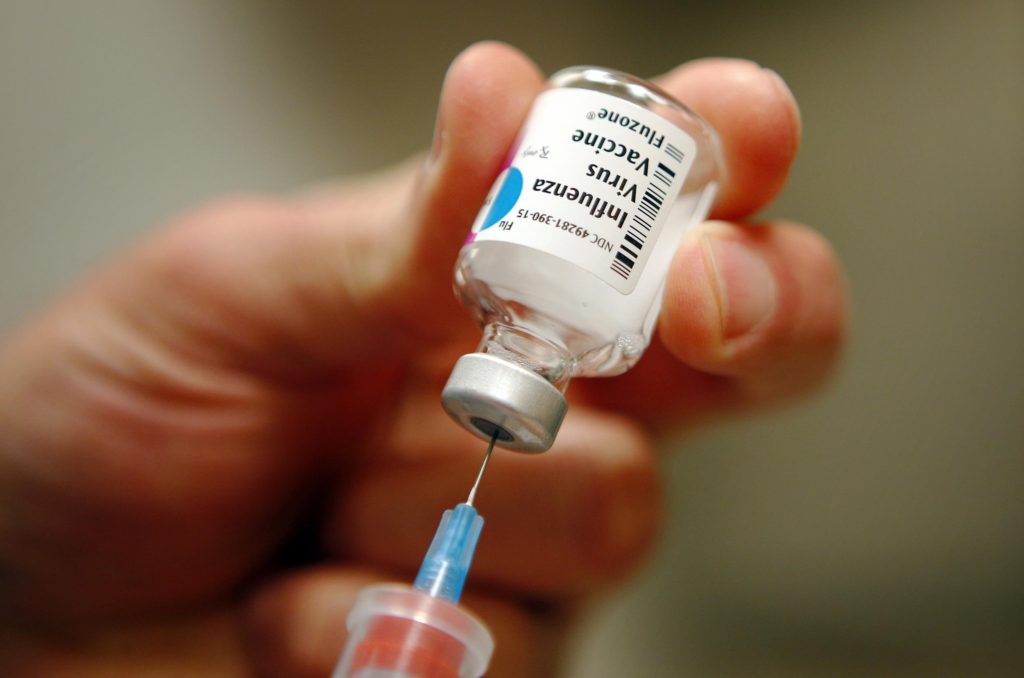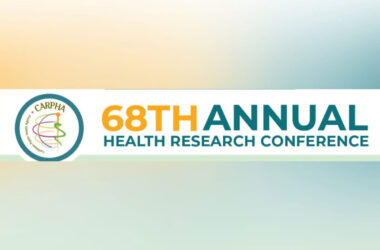ACTING National Epidemiologist in the Ministry of Health, Dr. Gemma Cherry, in response to the growing fear among St. Lucians about the reported increase of influenza cases, which she dismissed as non-factual, has stated that the flu shot is crucial to influenza prevention.

The topic of vaccines and their increased use and links to brain damage and allergies is often broached in the U.S. as well as among people here who are also concerned with the potential side effects of their use.
It is a topic which continues to spark widespread debate by the vast majority of medical practitioners who continue to almost unanimously sanction their increased use. However, various groups of people are becoming more and more skeptical about the safety of vaccines and are questioning more and more the potential harm that vaccines may cause.
During an interview last week, when asked what the Ministry of Health recommends that people do to combat the onset of influenza, the doctor gave the flu shot a ringing endorsement.
She said that once it comes to flu prevention: “The flu shot is actually your first, and what we consider your most important, step.”
She continued her flu shot recommendation, stating that “flu vaccine is actually available at all Wellness Centres and it is free.”
In encouraging people to go out and get vaccinated, Dr. Cherry pointed out at-risk groups whom, she said, are most likely to acquire influenza: pregnant women; people who have chronic diseases; people who are asthmatics; people who are diabetics; people with heart disease; children less than five years old, but with special emphasis on those less than two; and people who live in foster care homes.
However, it is a known fact that the proteins contained in vaccines like the flu shot cause allergies to develop in people. In a case report entitled, “Evidence that food proteins in vaccines cause the development of food allergies and its implications for vaccine policy”, this fact is made clear.
It states that: “Nobel Laureate Charles Richet demonstrated over a hundred years ago that injecting a protein into animals or humans causes immune system sensitization to that protein.”
What this means is that: “Subsequent exposure to the protein can result in allergic reactions or anaphylaxis.” An anaphylaxis is “an acute allergic reaction to an antigen (e.g., a bee sting) to which the body has become hypersensitive.”
The case report continues, stating: “This fact has since been demonstrated over and over again in humans and animal models. The Institute of Medicine (IOM) confirmed that food proteins in vaccines cause food allergy, in its 2011 report on vaccine adverse events.”
However, severe allergic reaction (anaphylaxis) is not the only side effect of vaccine use being discussed. More and more, it is believed that vaccines may lead to brain damage, although it is claimed that there are no studies which have proven this to be so.
Another article, entitled “Vaccines and Autism: A Tale of Shifting Hypotheses”, says that there is a link between vaccination and brain damage, and is “centered on the measles-mumps-rubella (MMR) vaccine, thimerosal, and the large number of vaccines currently administered.” It does go on to say, however, that “both epidemiological and biological studies fail to support these claims.”
Vaccine use continues to remain a controversial topic in modern society.
















Simply stated: THE FLU SHOT IS NOT VITAL.
That said, there are concrete measures that can be taken to sharply reduce the risk.
The vaccine:
— The flu vaccine is manufactured many months before the commencement of the flu season.
— Because of this, there is a forecast (that is an educated guess) as to which flu strains will be prominent in the upcoming season. That is, what strains to design the vaccine to treat for.
— Strains vary from year to year, and there is always more than one strain. . Sometimes the educated guess is correct and the prominent strain is the one. Hence, as studies over the years have consistently shown, the vaccine’s efficacy is never, ever even close to 100%.
— Further, some who get the vaccine still get the flu.
— Links worth reading:
http://time.com/5138100/how-effective-is-the-2018-flu-shot/
“the dominant strain is influenza A(H3N2). The flu vaccine is only about 30 percent effective against this strain of the influenza virus, which was also the dominant strain during the 2014-2015 flu season. That particular season was classified as a moderately severe flu season, and the CDC has compared it to the current one.”
https://www.inverse.com/article/41140-cdc-reports-2017-2018-flu-season-will-get-worse-hospitalizations-deaths
http://www.cbc.ca/news/health/flu-vaccine-1.4515141
https://www.vox.com/science-and-health/2018/2/1/16960758/flu-vaccine-effectiveness
http://www.wtsp.com/article/entertainment/television/studio10/health/how-did-researchers-get-the-flu-vaccine-so-wrong-this-year/67-517926279
“…according to the Australian Government Department of Health. Influenza A (H3N2) viruses predominated, and the preliminary estimate of vaccine effectiveness against influenza A (H3N2) was only 10%. ”
http://www.nejm.org/doi/full/10.1056/NEJMp1714916#t=article.
The good news is that there are proven, simple steps that can be taken to sharply reduce the risk of getting ANY strain of the flu. Mr. Nestor’s article was saly lacking in discussing this when discussing the flu.
These basic steps taken on a daily basis include:
— Minimizing contact with those displaying flu symptoms;
— Cover your mouth and nose when you sneeze, coughing not into your had, but crooking your arm and coughing into your elbow;
— Stay at home when you are sick to minimize spread and to concentrate on resting, hydrating, and eating in a healthy manner;
— Wash your hands frequently every day with soap and water else an alcohol-based hand wipe or lotion, available at most dispensaries;
— Avoid unnecessarily touching your eyes, nose and mouth. Many of us do it subconsciously, without even knowing it;
— Live healthy: Eat properly, do physical activity, get enough sleep. This will help the body maximize its immune system.
In conclusion, the article was disappointingly, very disappointingly unbalanced and read more like a hastily pasted together assemblage of media articles.
Such an article would have much, much better serviced the readership if it had been written by someone in the health sciences field, rather than someone who graduated in English Literature, History and Sociology.
God Bless.
Consistent with critical differences between natural infection and immunization, well-controlled epidemiologic studies do not support the hypothesis that vaccines cause autoimmunity. Flaws in proposed biological mechanisms that explain how vaccines might cause chronic diseases are consistent with the findings of many well-controlled large epidemiologic studies that fail to show a causal relationship.
Source: https://www.ncbi.nlm.nih.gov/m/pubmed/12612250/